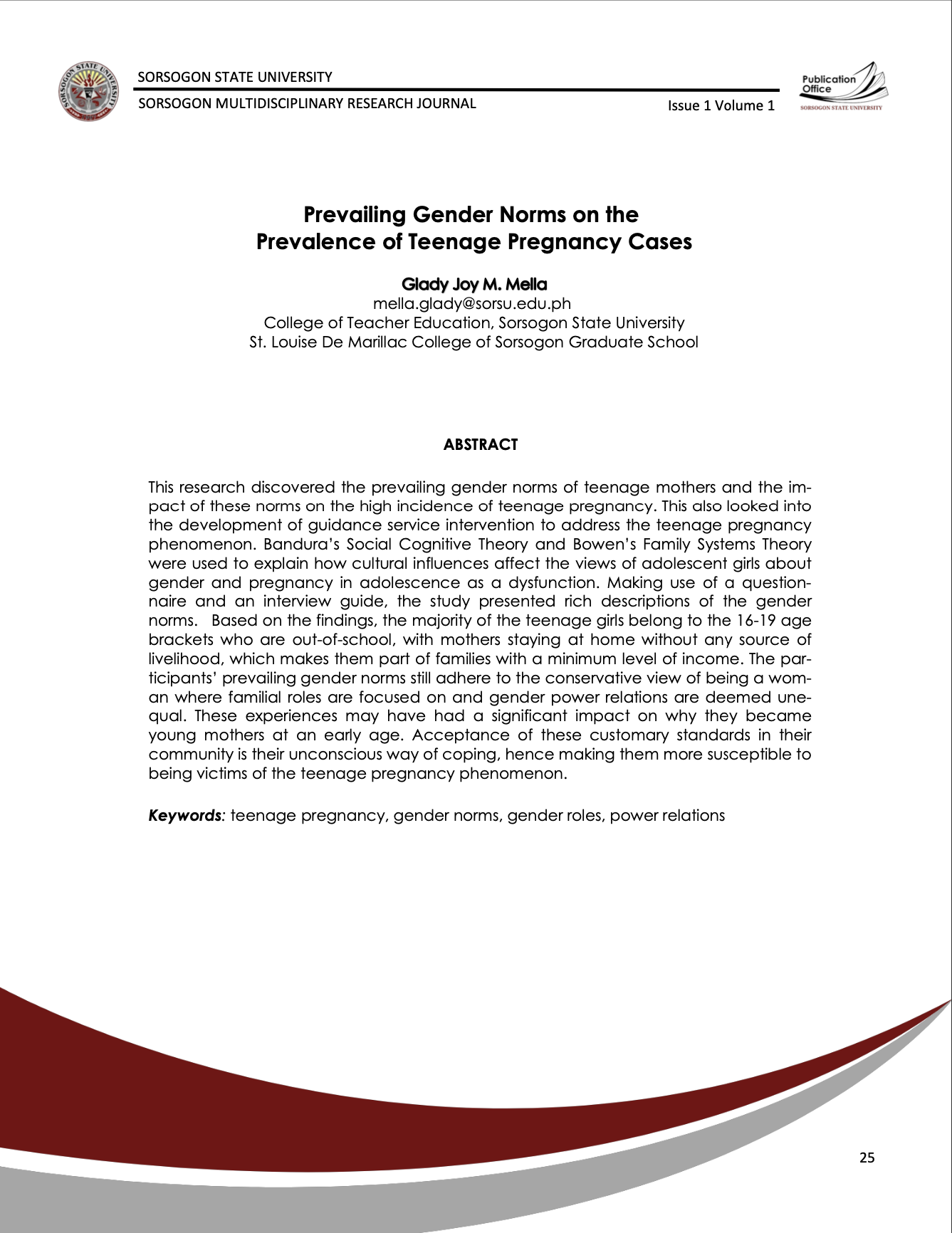Abstract
This research discovered the prevailing gender norms of teenage mothers and the impact of these norms on the high incidence of teenage pregnancy. This also looked into the development of guidance service intervention to address the teenage pregnancy phenomenon. Bandura’s Social Cognitive Theory and Bowen’s Family Systems Theory were used to explain how cultural influences affect the views of adolescent girls about gender and pregnancy in adolescence as a dysfunction. Making use of a questionnaire and an interview guide, the study presented rich descriptions of the gender norms. Based on the findings, the majority of the teenage girls belong to the 16-19 age brackets who are out-of-school, with mothers staying at home without any source of livelihood, which makes them part of families with a minimum level of income. The participants’ prevailing gender norms still adhere to the conservative view of being a woman where familial roles are focused on and gender power relations are deemed unequal. These experiences may have had a significant impact on why they became young mothers at an early age. Acceptance of these customary standards in their community is their unconscious way of coping, hence making them more susceptible to being victims of the teenage pregnancy phenomenon.

This work is licensed under a Creative Commons Attribution 4.0 International License.
Copyright (c) 2023 Multidisciplinary Research Journal




